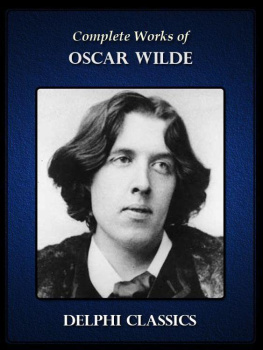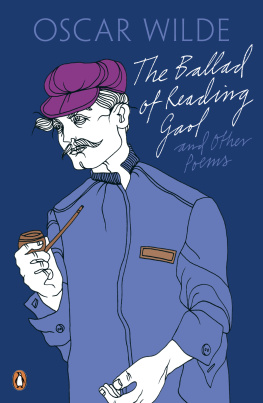PENGUIN CLASSICS
Published by the Penguin Group
Penguin Books Ltd, 80 Strand, London WC2R 0RL, England
Penguin Group (USA) Inc., 375 Hudson Street, New York, New York 10014, USA
Penguin Group (Canada), 90 Eglinton Avenue East, Suite 700, Toronto, Ontario, Canada M4P 2Y3 (a division of Pearson Penguin Canada Inc.)
Penguin Ireland, 25 St Stephens Green, Dublin 2, Ireland (a division of Penguin Books Ltd)
Penguin Group (Australia), 707 Collins Street, Melbourne, Victoria 3008, Australia (a division of Pearson Australia Group Pty Ltd)
Penguin Books India Pvt Ltd, 11 Community Centre, Panchsheel Park, New Delhi 110 017, India
Penguin Group (NZ), 67 Apollo Drive, Rosedale, Auckland 0632, New Zealand (a division of Pearson New Zealand Ltd)
Penguin Books (South Africa) (Pty) Ltd, Block D, Rosebank Office Park, 181 Jan Smuts Avenue, Parktown North, Gauteng 2193, South Africa
Penguin Books Ltd, Registered Offices: 80 Strand, London WC2R 0RL, England
www.penguin.com
The text of the letters, and the accompanying notes, first published in The Complete Letters of Oscar Wilde, edited by Merlin Holland and Rupert Hart-Davis, and published in Great Britain, by Fourth Estate Ltd, 2000.
Letters and notes reprinted by permission of HarperCollins Publishers Ltd
This edition published in Penguin Classics 2013
Copyright The Estate of Oscar Wilde, 1962, 1985, 2000
Introduction and additional editorial material Colm Tibn, 2013
Cover: Detail from Oscar Wilde by Maggi Hambling, 1985.
Oil on canvas, diptych. By Kind permission of the artist (Photograph: Private Collection/The Bridgeman Art Library)
All rights reserved
ISBN: 978-0-140-43990-8

DE PROFUNDIS AND OTHER PRISON WRITINGS
OSCAR FINGAL OFLAHERTIE WILLS WILDE was born in Dublin in 1854, his father an eminent eye-surgeon and his mother a national poet who wrote under the pseudonym of Speranza. He went to Trinity College, Dublin, and then to Magdalen College, Oxford, where he began to propagandize the new Aesthetic (or Art for Arts Sake) Movement. Despite winning a first and the Newdigate Prize for Poetry, Wilde failed to obtain an Oxford fellowship after his finals, and was forced to earn a living by lecturing and writing for periodicals. He published a largely unsuccessful volume of poems in 1881 and in the next year undertook a lecture-tour of the United States in order to promote the DOyly Carte production of Gilbert and Sullivans comic opera Patience. After his marriage to Constance Lloyd in 1884, he tried to establish himself as a writer, but with little initial success. However, his three volumes of short fiction, The Happy Prince (1888), Lord Arthur Saviles Crime (1891) and A House of Pomegranates (1891), together with his only novel, The Picture of Dorian Gray (1891), gradually won him a reputation as a modern writer with an original talent, a reputation confirmed and enhanced by the phenomenal success of his Society Comedies Lady Windermeres Fan, A Woman of No Importance, An Ideal Husband and The Importance of Being Earnest, all performed on the West End stage between 1892 and 1895.
Success, however, was short-lived. In 1891 Wilde had met and fallen in love with Lord Alfred Douglas. In 1895, when his success as a dramatist was at its height, Wilde brought an unsuccessful libel action against Douglass father, the Marquess of Queensberry. Wilde lost the case and two trials later was sentenced to two years imprisonment for acts of gross indecency. As a result of this experience he wrote De Profundis, his long confessional letter to Douglas, and The Ballad of Reading Gaol. He was released from prison in 1897 and went into an immediate self-imposed exile on the Continent. He died in Paris in ignominy in 1900.
COLM TIBN is the author of six novels, including The Blackwater Lightship (1999), The Master (2004) and Brooklyn (2009), and two story collections, Mothers and Sons (2006) and The Empty Family (2010). His essay collections are Love in a Dark Time: Gay Lives from Wilde to Almodvar (2002), All a Novelist Needs: Essays on Henry James (2010) and New Ways to Kill Your Mother: Writers and Their Families (2012). He is Irene and Sidney Silverman Professor of the Humanities at Columbia University and a contributing editor at the London Review of Books.
Chronology
1854 Oscar Fingal OFlahertie Wilde born (he added Wills in the 1870s) on 16 October at 21 Westland Row, Dublin.
1855 His family move to 1 Merrion Square in Dublin.
1857 Birth of Isola Wilde, Oscars sister.
1858 Birth of Constance Mary Lloyd, Wildes future wife.
1864 Wildes father is knighted following his appointment as Queen Victorias Surgeon Oculist the previous year. Wilde attends Portora Royal School, Enniskillen.
1867 Death of Isola Wilde.
18714 At Trinity College, Dublin, reading Classics and Ancient History.
18748 At Magdalen College, Oxford, reading Classics and Ancient History (Greats).
1875 Travels in Italy with his tutor from Dublin, J. P. Mahaffy.
1876 First poems published in Dublin University Magazine. Death of Wildes father, Sir William Wilde.
1877 Further travels in Italy, and in Greece.
1878 Wins the Newdigate Prize for Poetry in Oxford with Ravenna. Takes a double first from Oxford. Moves to London and starts to establish himself as a popularizer of Aestheticism.
1881 Meets Constance Lloyd. Poems published at his own expense; not well received critically.
1882 Lecture tour of North America, speaking on art, aesthetics and house decoration. Revised edition of Poems published.
1883 His first play, Vera; or, The Nihilists, performed in New York; it is not a success.
1884 Marries Constance Lloyd in London, honeymoon in Paris and Dieppe.
1885 Moves into 16 Tite Street, Chelsea. Cyril Wilde is born.
1886 Vyvyan Wilde born. Meets Robert Ross, to become his lifelong friend and, after his death, his literary executor. Ross might have been Wildes first homosexual lover.
1887 Becomes the editor of Ladys World: A Magazine of Fashion and Society, and changes its name to Womans World. Publication of The Canterville Ghost and Lord Arthur Saviles Crime.
1888 The Happy Prince and Other Tales published; on the whole well received.
1889 Pen, Pencil and Poison (on the forger and poisoner Thomas Griffiths Wainewright), The Decay of Lying (a dialogue in praise of artifice over nature and art over mortality), The Portrait of Mr W. H. (on the supposed identity of the dedicatee of Shakespeares sonnets) all published.
1890 The Picture of Dorian Gray published in the July number of Lippincotts Monthly Magazine; fierce debate between Wilde and hostile critics ensues. The True Function and Value of Criticism (later revised and included in Intentions as The Critic as Artist) published.
1891 Wildes first meeting with Lord Alfred Douglas (Bosie). The Duchess of Padua

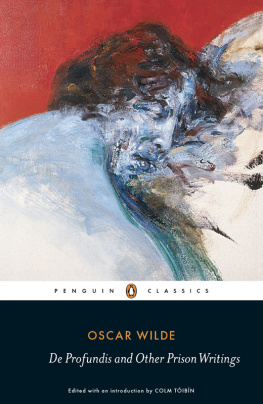
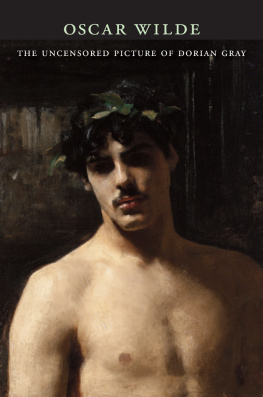
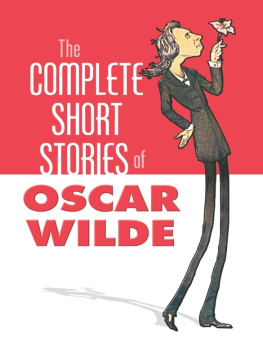

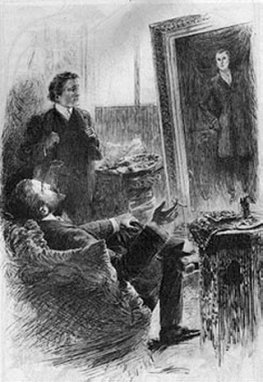
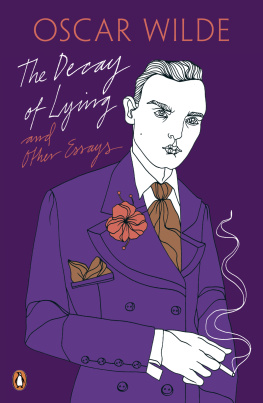
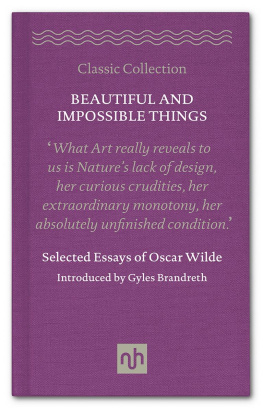

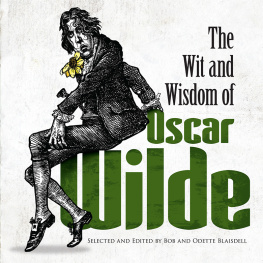
![Wilde Oscar - The secret life of Oscar Wilde: [an intimate biography]](/uploads/posts/book/228457/thumbs/wilde-oscar-the-secret-life-of-oscar-wilde-an.jpg)
